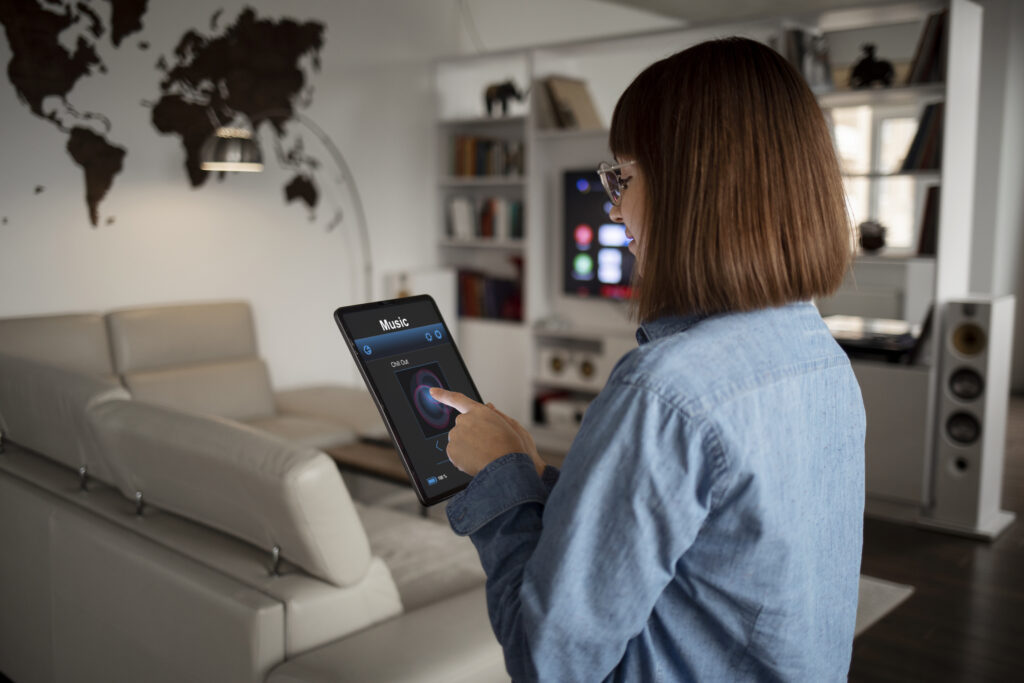introduction
Voice assistants have become a universal part of modern technology, effortlessly integrating into smartphones, smart speakers, and other smart devices. They are driven by artificial intelligence (AI) and are designed to assist users through voice commands. Popular voice assistants include Amazon’s Alexa, Apple’s Siri, Google Assistant, and Microsoft’s Cortana. While these tools offer numerous advantages, they also come with significant drawbacks. This essay explores the pros and cons of using voice assistants in a comprehensive manner, delving into their implications on convenience, accessibility, privacy, security, and overall user experience.
Pros of Using Voice Assistants
1. Convenience and Hands-Free Operation

One of the main advantages of voice assistants is the convenience they offer. These tools enable hands-free operation by allowing users to interact with their devices through voice commands. This is particularly useful in scenarios where hands are occupied, such as cooking, driving, or exercising. For instance, a user can ask a voice assistant to set a timer while preparing a meal. It can be asked to send a text message while driving, without having to touch their phone. This hands-free capability enhances multitasking and can significantly update daily routines.
2. Accessibility

Voice assistants are a boon for individuals with disabilities. For people with visual impairments or mobility issues, traditional methods of interacting with devices—such as using a touchscreen or keyboard—can be challenging. Voice assistants eliminate these barriers by enabling voice-based interactions. This makes it easier for individuals with disabilities to access information. It helps them to communicate, and control smart devices, thereby promoting inclusivity and enhancing their quality of life.
3. Time Efficiency

Time efficiency is another key benefit of voice assistants. Tasks that might require multiple steps on a device, such as setting reminders, sending messages, or searching for information, can be accomplished more quickly with voice commands. For example, instead of unlocking a phone, opening an app, and typing a message, a user can simply say, “Send a message to John saying I’ll be late.” This saves time and reduces the mental load associated with navigating through various apps and menus.
4. Integration with Smart Homes

Voice assistants are integral to the concept of smart homes. They can control a wide range of smart home devices, including lights, thermostats, security systems, and entertainment systems. This integration allows users to manage their home environment more efficiently. For instance, a user can adjust the thermostat, turn off lights, and lock doors with simple voice commands. This level of control enhances the convenience and energy efficiency of smart homes, making them more appealing to modern consumers.
5. Personalization

Over time, voice assistants can learn user preferences and routines, offering personalized responses and recommendations. For example, a voice assistant might suggest a favorite playlist in the morning or provide traffic updates based on the user’s usual commute. This personalization can enhance the user experience by making interactions more relevant and tailored to individual needs. Additionally, voice assistants can integrate with other services, such as calendars and email, to provide reminders and notifications that are specific to the user’s schedule and interests.
6. Information Retrieval

Voice assistants excel at quickly retrieving information. Whether it’s checking the weather, getting news updates, or finding answers to general knowledge questions, voice assistants can provide immediate responses without requiring users to type or search manually. This capability is particularly useful in scenarios where quick access to information is crucial, such as during meetings, cooking, or while on the go.
Cons of Using Voice Assistants
1. Privacy Concerns

One of the most significant drawbacks of voice assistants is the potential threat to privacy. Voice assistants constantly listen for their wake word (e.g., “Hey Siri,” “Alexa”) to activate, which means they are always in a passive listening mode. This raises concerns about potential spying and unauthorized recording of conversations. Although companies assert that recordings are only made after the wake word is detected, there have been instances where voice assistants have accidentally recorded conversations without user intent. These recordings are often stored on company servers, raising concerns about how this data is used and who has access to it.
2. Dependence on Internet Connection

Most voice assistants rely heavily on an active internet connection to process commands and retrieve information. This dependency can be a significant limitation in areas with poor connectivity or during internet outages. Without a stable connection, the functionality of voice assistants is severely restricted, rendering them unable to perform even basic tasks. This reliance on the internet also means that voice assistants are susceptible to latency issues, which can affect the speed and reliability of their responses.
3. Accuracy and Understanding Issues

Voice recognition technology, while advanced, is not perfect. Voice assistants can struggle with understanding accents, dialects, background noise, and speech impediments. This can lead to inaccuracies in executing commands or providing responses. For instance, a voice assistant might misinterpret a command due to background noise or fail to recognize a request due to an accent it is not trained to understand. Such inaccuracies can be frustrating for users and diminish the overall effectiveness of the technology.
4. Security Risks

Security is another major concern with voice assistants. These devices can be prone to unauthorized access if not properly secured. For example, someone within hearing range might issue commands to a voice assistant. It can potentially compromise security settings or accessing personal information. Additionally, there have been instances where voice assistants have been triggered by sounds from media, such as television commercials, leading to unintended actions like unauthorized purchases. Ensuring robust security measures, such as voice recognition and user authentication, is essential to lessen these risks.
5. Limited Functionality

Despite their capabilities, voice assistants have limitations in handling complex tasks or understanding nuanced context. They often require precise phrasing to execute commands correctly. Their ability to engage in natural, conversational dialogue is still developing. For example, a user might struggle to convey a complex request in a way that the voice assistant can understand, leading to incomplete or incorrect responses. This limited functionality can be a burden for users who expect a more continuous and spontaneous interaction.
6. Potential for Misuse

There are concerns about the potential misuse of voice assistants, particularly by children or unauthorized individuals. For instance, children might carelessly or deliberately make unauthorized purchases through a voice assistant, leading to unexpected charges. Similarly, prank commands issued by friends or family members can result in unwanted actions, such as setting alarms or changing settings. These scenarios highlight the importance of implementing safeguards, such as parental controls and voice recognition, to prevent misuse.
Conclusion
Voice assistants represent a significant advancement in AI and human-computer interaction, offering numerous benefits that enhance convenience, accessibility, and integration with smart technologies. They enable hands-free operation, provide valuable assistance to individuals with disabilities, save time, and integrate seamlessly with smart home devices. Personalization and quick information retrieval further enhance their appeal.
However, these advantages come with notable drawbacks. Privacy concerns, dependence on internet connectivity, accuracy issues, security risks, limited functionality, and potential for misuse are significant challenges that need to be addressed. Users must weigh these pros and cons based on their specific needs and circumstances to determine whether the benefits of using a voice assistant outweigh the potential drawbacks.
As technology continues to evolve, it is likely that voice assistants will become more sophisticated. We should address some of the current limitations while introducing new features. Ensuring that these advancements prioritize user privacy, security, and accessibility. It will be crucial in maximizing the positive impact of voice assistants on society. In the meantime, users should remain informed and vigilant about the potential risks. They should take proactive measures to protect their privacy and security. At the same time keep enjoying the convenience and benefits that voice assistants offer.
